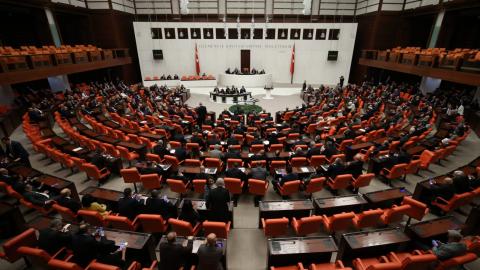Turkey’s Planned Internet Law to Criminalise ‘Spreading Misinformation’

Members of the Turkish parliament in session at the Grand National Assembly in Ankara, 2 January 2020. Photo: EPA-EFE/STR
The law was prepared by President Recep Tayyip Erdogan's ruling Justice and Development Party, AKP and its far-right partner, the Nationalist Movement Party, MHP.
The new law, which is expected to pass soon, for the first time defines the crime of "spreading misinformation on purpose".
It criminalises "a person who publicly disseminates false information regarding internal and external security, public order and the general health of the country, in a way that is suitable for disturbing the public peace, simply for the purpose of creating anxiety, fear or panic among the people", the draft law explains.
According to the proposed law, persons who spread misinformation may be jailed for one to three years. If the court decides that the person spread misinformation as part of an illegal organisation, the jail sentence will be increased by 50 per cent.
Journalists may also be charged under this new law if they use anonymous sources for hiding the identity of the person who spreads the misinformation.
The draft law was condemned by experts and journalists' unions.
Journalists unions in a written statement on Friday, including the Journalists' Union of Turkey, TGS, the Journalists' Association and the International Press Institute's Turkey Committee, said that, "concerned that it may lead to one of the most severe censorship and self-censorship mechanisms in the history of the republic, we call for the immediate withdrawal of this bill, which seems to have been designed to increase the pressure on journalism, not 'fight against disinformation".
The new law also allows internet media to register as...
- Log in to post comments
